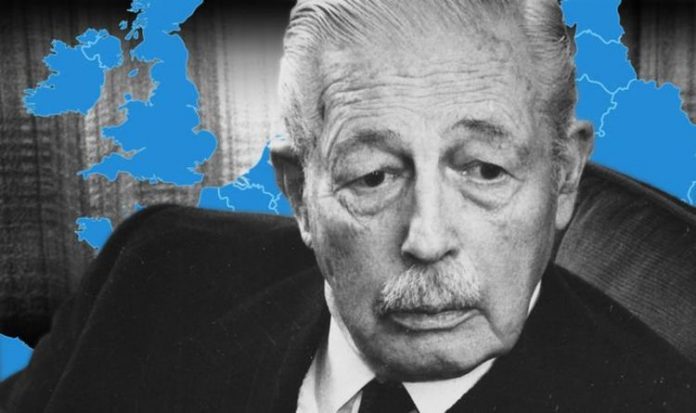After three years of political wrangling, Britain finally left the EU at 11pm on January 31. It is a new chapter for the country’s national history – one that will hopefully see the UK return to being an independent sovereign state after the transition period. Prime Minister Boris Johnson has less than a month to secure a free trade agreement and, in a sign of the battles still to be fought, there are significant differences between the negotiating positions of two sides.
Brussels continues to insist on maintaining its current fishing rights in British waters and wants London to agree to a number of EU regulations, including environmental standards, workers’ rights and state aid rules.
On the other hand, Mr Johnson is demanding the right to diverge from the bloc’s rules in order to strike trade agreements around the world.
As the clock ticks down, in an exclusive interview with Express.co.uk, Ukip founder Alan Sked shed light on the negotiations that preceded Britain’s entry into the European bloc.
Former Prime Minister Edward Heath signed the accession treaty to join the EEC in 1972.
However, that was just the culmination of a lifetime of efforts from both him and his predecessor Harold Macmillan, who first applied to join the Community in 1963.
Mr Sked argued that Mr Macmillan and Mr Heath adopted strategies of deliberate deception to get in.
The emeritus Professor of International History at the London School of Economics (LSE) told Express.co.uk: “Macmillan in 1961 set up a long-term policy committee under Sir Frank Lee.
“Sir Frank was brought out of retirement to look at the future policies of the EEC once Britain was inside.
“This Committee was set up after a meeting at the end of August, 1961.
“The Committee accepted, and bear in mind that this was a British Cabinet Committee, that the long term goal should have been the replacement of sterling by a European reserve currency.
“It said there was strong support from the City of London for this.
“The Committee also questioned whether the UK would even exist as an independent sovereign state by the year 2000.”
According to Mr Sked, Mr Macmillan met several times with Jean Monnet, one of the founding fathers of the EU.
He added: “He met Monnet in secret on October 8,1961.
“A week later the long-term policy group accepted that an eventual European single currency, a central European political secretariat, closer integration of national defence forces, the Europeanisation of British education, the creation of a genuine European Parliament, and a common European citizenship, would have all been goals for Britain once it was in the Community.
JUST IN: France called on ‘lying’ UK politicians to drop Brexit
“They would have swallowed everything to get it.
“This comes from the Monnet papers in Switzerland.”
Despite Mr Macmillan’s eagerness to join the European bloc, former French President Charles de Gaulle kept the UK out by vetoing its entry in 1963 and then again in 1967.
At a press conference in 1963, de Gaulle cited Britain’s economic and historical “peculiarities”, including its links to the US as well as the Commonwealth – which, he claimed, had the potential to impact upon the future cohesion of the Common Market.
He also famously told the German Chancellor Konrad Adenauer in 1963 that, “Europe is France and Germany; the rest are just the trimmings”.
At a meeting in 1967, de Gaulle argued that Britain’s historical links to the Commonwealth and links with the US meant that British entry into the Community would be destabilising and that Britain would be a divisive force among member states.
Explaining the reason why the French President wanted to keep Britain out, former Conservative MEP Daniel Hannan said: “First, he wanted France to be the dominant force within the EEC and I think that’s hard to argue with.
DON’T MISS:
Vote Leave insiders explain why PM won’t sell out fishing rights [EXCLUSIVE]
Michael Gove dropped bid for instant return of fisheries control [REVEALED]
No deal projections are ‘overblown and misleading’ [ANALYSIS]
“But the second and more subtle argument is one he is rarely given credit for.
“He in some ways understood Britain better than its own leaders of that era did.
“He made a speech explaining one of his vetoes when he said Britain has always been a maritime country.
“Lengthy supply lines, its trading patterns means it will never comfortably assimilate into a continental bloc.
“I think that’s true and it never ceased to be true.
“Britain is a semi European country in a way that I think the other members struggle to understand.”







